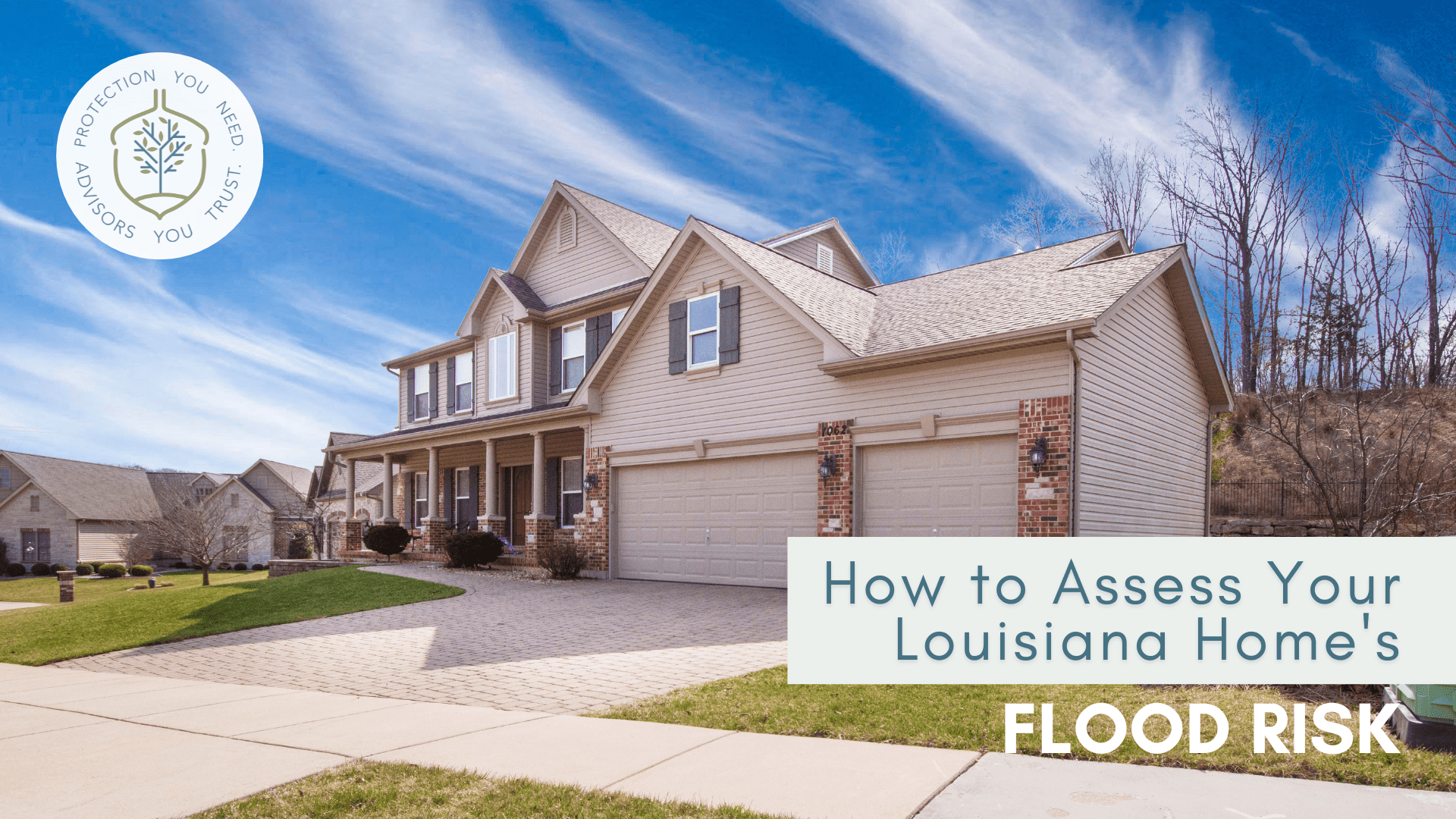When looking to buy a home, the location is everything. But how much do you consider your flood risk when making your decision? Floods could devastate your property, costing tens of thousands in damages.
It is essential to understand your flood risk to help you assess the level of potential flood exposure and make informed decisions about home maintenance, insurance coverage, emergency preparedness plans, and more. Read on!
Understanding Your Flood Risk in Louisiana
Situated along the Gulf of Mexico, Louisiana is characterized by its low-lying coastal plains and abundant waterways. With a combination of frequent heavy rainfall, tropical storms, and hurricanes, Louisiana faces heightened vulnerability to flooding.
A report also reveals that a staggering 42.8% of individual properties in Louisiana are at risk of flooding within the next 30 years. Among these properties, 43% are categorized as having a major to extreme risk of flooding.
Furthermore, in terms of the proportion of properties with significant flood risk, Louisiana ranks second nationwide, with a rate of 21.1%, narrowly trailing behind West Virginia with a rate of 24.4%.
Types of Floods in Louisiana
Understanding the different types of floods is crucial for home buyers and homeowners to effectively prepare for and mitigate the risks associated with each. There are six main types of floods that commonly occur in Louisiana.
- Flash flooding. Sudden and intense floods result from heavy rainfall within a short period of time, overwhelming the capacity of local waterways and causing rapidly rising water levels.
- Ponding. This occurs when concave areas, such as roads or parking lots, accumulate water due to the inability to drain.
- Riverine flooding. It happens when rivers and streams exceed their banks due to heavy rainfall or snowmelt. This type of flooding can be prolonged and affect large areas along the waterways.
- Backwater flooding. Occurs when water slowly rises from an unexpected area where protection, such as a levee, is not available.
- Urban flooding. Occurs in urbanized areas when water accumulates because the stormwater drainage systems are overcapacity.
- Coastal flooding. Primarily caused by hurricanes and tropical storms. Coastal flooding involves storm surge, high tides, and strong winds that can lead to significant inundation along the coastal areas.
How to Know Your Flood Risk in Louisiana
While the state of Louisiana requires home sellers to disclose the flood risk of a house, it doesn’t hurt to conduct your own research before purchasing a property. Here are some ways to help you assess your flood risk.
Check FEMA’s Flood Map Service Center
To accurately assess your flood risk, a valuable resource to utilize is FEMA’s Flood Map Service Center. It provides access to flood maps that outline floodplain areas and flood zone designations.
Floodplains and flood zone designations can change over time due to new construction and alterations in topography.
Therefore, it is recommended to check for any updates or changes in the property’s flood zone designation every five years or so to stay informed about any modifications that may affect the house’s flood risk.
Your Mortgage Lender Requires Flood Insurance
Mortgage lenders often require flood insurance for properties located in federally designated high-risk flood zones or floodplains.
This requirement aims to protect both the homeowner and the lender from potential financial losses due to flood damage.
However, even if flood insurance is not mandatory, it is still highly advisable to have coverage in place. Floods can occur unexpectedly, and the financial and emotional impact of such events can be significant.
Read also: Do I Need Flood Insurance in Louisiana?
Homeowners Insurance is Not Flood Insurance
It is important to understand that homeowners insurance does not provide coverage for flood damage.
While homeowners insurance policies typically cover a wide range of perils such as fire, theft, and windstorm, they specifically exclude coverage for flood-related losses.
Flood insurance is a separate policy that provides coverage specifically for flood damage.
Without flood insurance, homeowners may be left vulnerable to significant financial losses if their property sustains damage from a flood event.
Knowing your flood risk can help guide you toward making informed decisions regarding the vulnerabilities of your future home or property.
Utilizing the resources mentioned above can provide you with insights into your specific flood risk.
Read also: How to Protect Your Home from Spring Flooding
There is no reason not to be proactive now about the future. Start understanding your flood risk today so that it does not come as an unpleasant surprise later in life.
If you are in search of flood insurance, contact TSL Insurance Group, your independent insurance agency in Lafayette, LA, today for a free quote.
With four other convenient locations in Baton Rouge, Abbeville, Franklin, and Lutcher, our agents are always ready to assist you in finding the best flood coverage for your property!
Sources:


Recent Comments